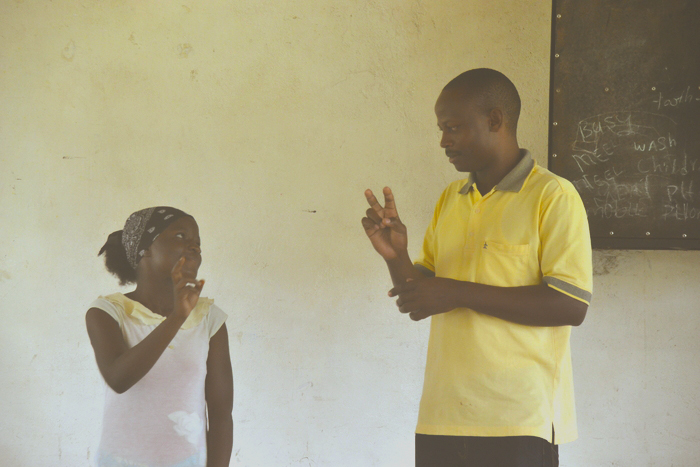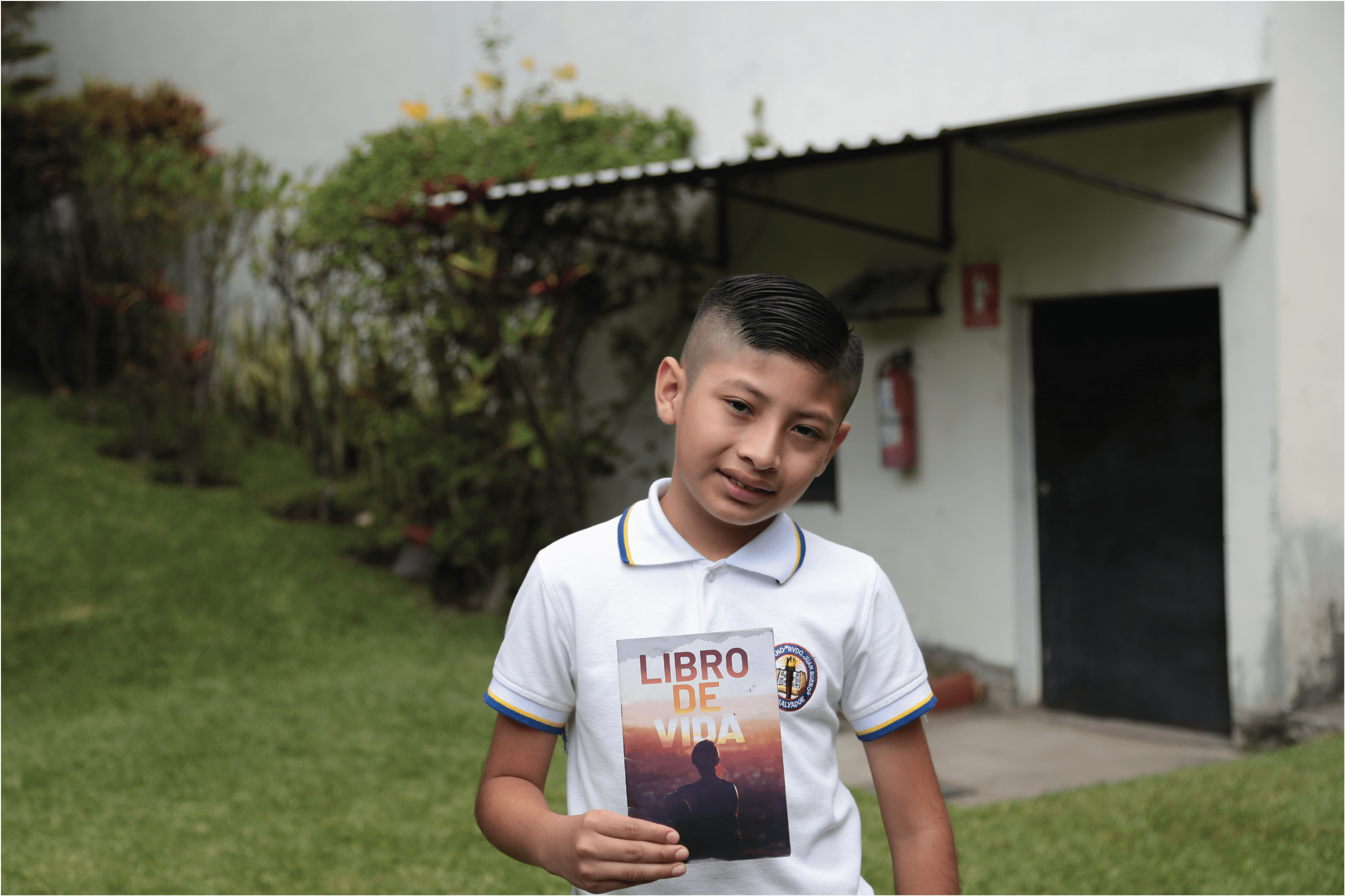Kennedy* enters the classroom and takes a seat in the usual place. He’s not in a hurry, because he doesn’t look forward to his religious education class. Some things are written on the board, but Kennedy only recognizes the word “son.” The teacher begins to lecture, speaking to the class and writing more things on the board. Kennedy copies down what the teacher writes, but after 30 minutes of instruction, he only understands that the lesson has something to do with a son, a father, and some money. He later fails the test on the subject, but still advances to the next grade level at the end of the year.
Kennedy is a Deaf student in a Kenyan Deaf school, and his experience is very common in developing countries. Kennedy is very smart; what holds him back are several key factors:
- Kennedy struggles to read. Children who are born Deaf, or who become Deaf before they acquire language, have a very different experience learning to read than a typical hearing child would. If I am a hearing child, I am immersed in spoken language every day and become very fluent by the time I enter school. Learning to read is visually absorbing a language I already know orally. But for a Deaf person who has not heard the language, learning to read is very different. Imagine learning written Mandarin without any explanation in another language and no sounds associated with the language. You get the idea.
- Kennedy’s teacher does not know sign language. In developing countries, this is very typical. This means that students cannot ask questions in sign language, and the teacher cannot explain concepts. Communication is reduced to writing on the board (which we see is a struggle) and reading lips (which is very hard to learn and not effective in a classroom).
- Kennedy lacks Deaf adult role models:
o Kennedy’s parents are not Deaf. 90% of Deaf children are born into homes where both parents are hearing. And in developing countries, much more than 90% of those parents will never learn to sign with their children.
o Kennedy’s teachers are not Deaf. This is common in developing countries, where it is hard for Deaf students to complete a teaching degree at a university due to a lack of interpreters.
In fact, because some Deaf children have never met a Deaf adult, they believe that when they grow up, they will either become hearing or they will die.
The next day, Kennedy enters his classroom again at the usual pace, and sits down. But much to his surprise, as class begins, a Deaf missionary from DOOR International named Simon enters the class and begins to teach the students the story of the Prodigal Son in Kenyan Sign Language. A smile sweeps across Kennedy’s face! He begins to copy Simon’s signs, and asks Simon questions about the story. At the end of the lesson, several students are invited up to recite the story, and as Kennedy tries, the teacher compliments him on not missing one part of the story! And more importantly, Kennedy encounters the overwhelming story of God’s grace for the first time in his life. He cannot wait to tell others about the son who was lost and is now found.
Kennedy’s reaction suggests some real hope for the bleak situation of Deaf religious education globally. The Deaf worldwide are one of the largest people groups unreached and unengaged by the Gospel. Deaf schools have an opportunity to make an incredible impact by raising up a new generation of Deaf children who know Christ and know what it means to follow Him. But this requires several resources:
- The Deaf need a translation of the Bible in their heart language – sign language. Without this, they are reduced to accessing the Gospel through written text. DOOR International, in partnership with Deaf Bible, SIL, and other organizations, is working with Deaf translation teams to make these translations a reality.
- There need to be Deaf adults trained to teach Scripture in sign language to others.
- These Deaf adults need the opportunity to enter Deaf schools and share sign language Scripture with the students.
What can you do to help? By supporting organizations that train and empower the Deaf, you enable them to reach their own people for Christ. Kennedy can eventually become a minister of the Gospel, and we all have the opportunity to help him achieve that.
For more information about DOOR International, visit www.doorinternational.com.
* Name changed
You will also enjoy:
- How to raise kids that stand strong against negative influences
- The sad truth about fatherless youth
- This changes everything: The Bible App for Kids
DR. ROBERT MYERS is CEO of DOOR International. Rob came to DOOR from Bethel College in Mishawaka, IN, where he served as Associate Professor of Mathematics and as Dean over six academic departments, including Sign Language Interpreting. Rob holds bachelor degrees in physics, math, and German from the University of Missouri, Columbia, and an M.A. and a Ph.D. in Math from the University of California, Berkeley. Rob and his wife, Michelle, have four sons.






1 Comment
It is my goal to serve the Deaf community Globally, How do I get involved in helping these people?